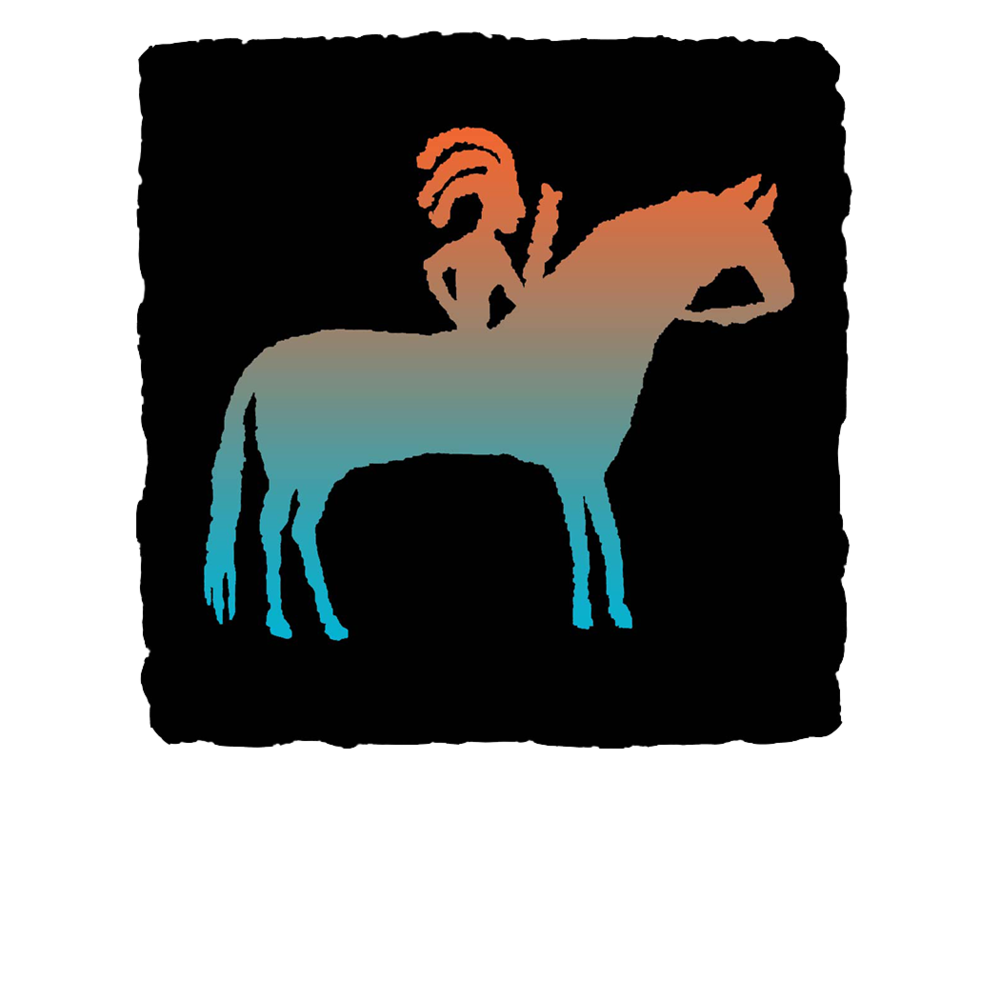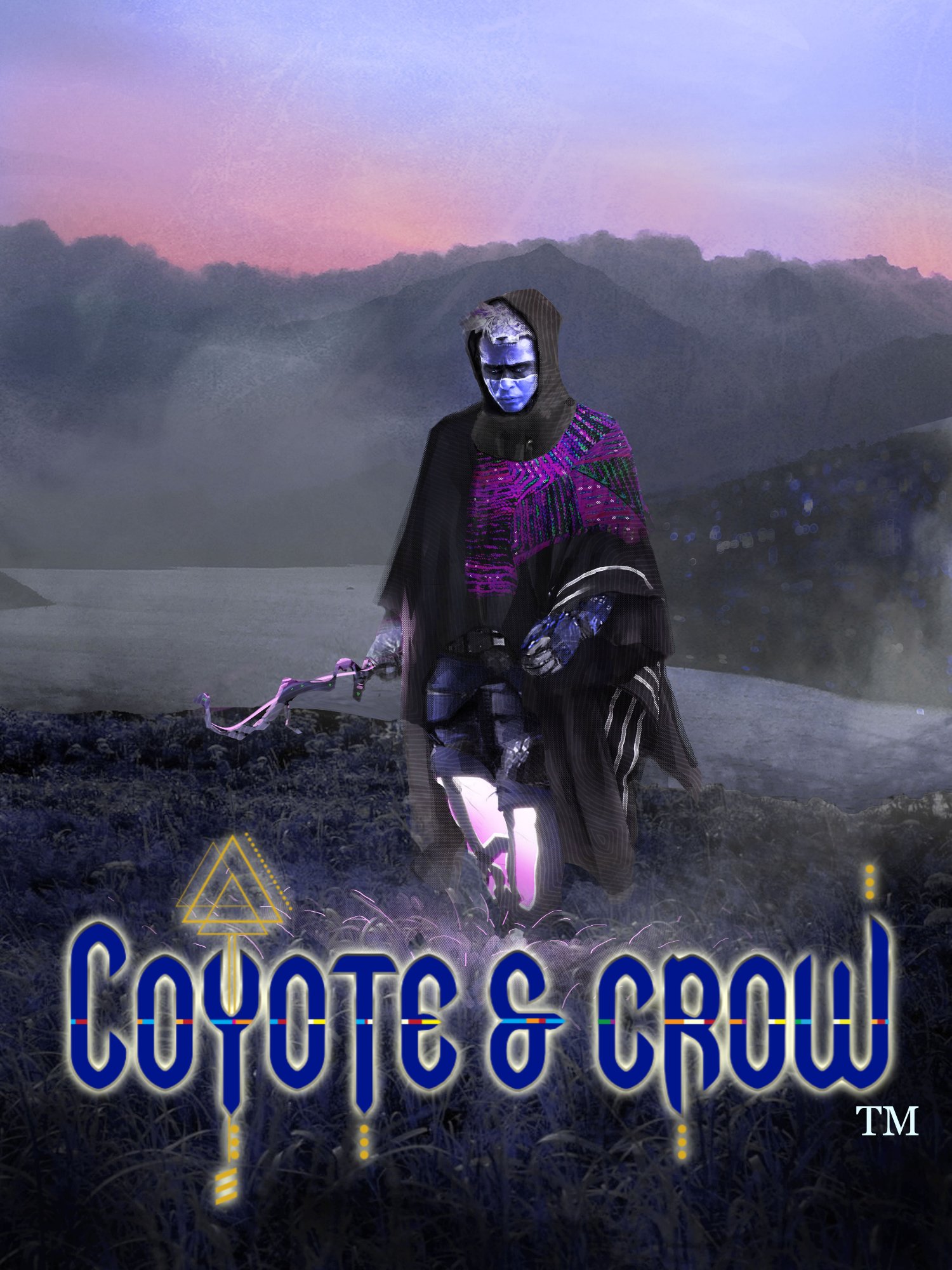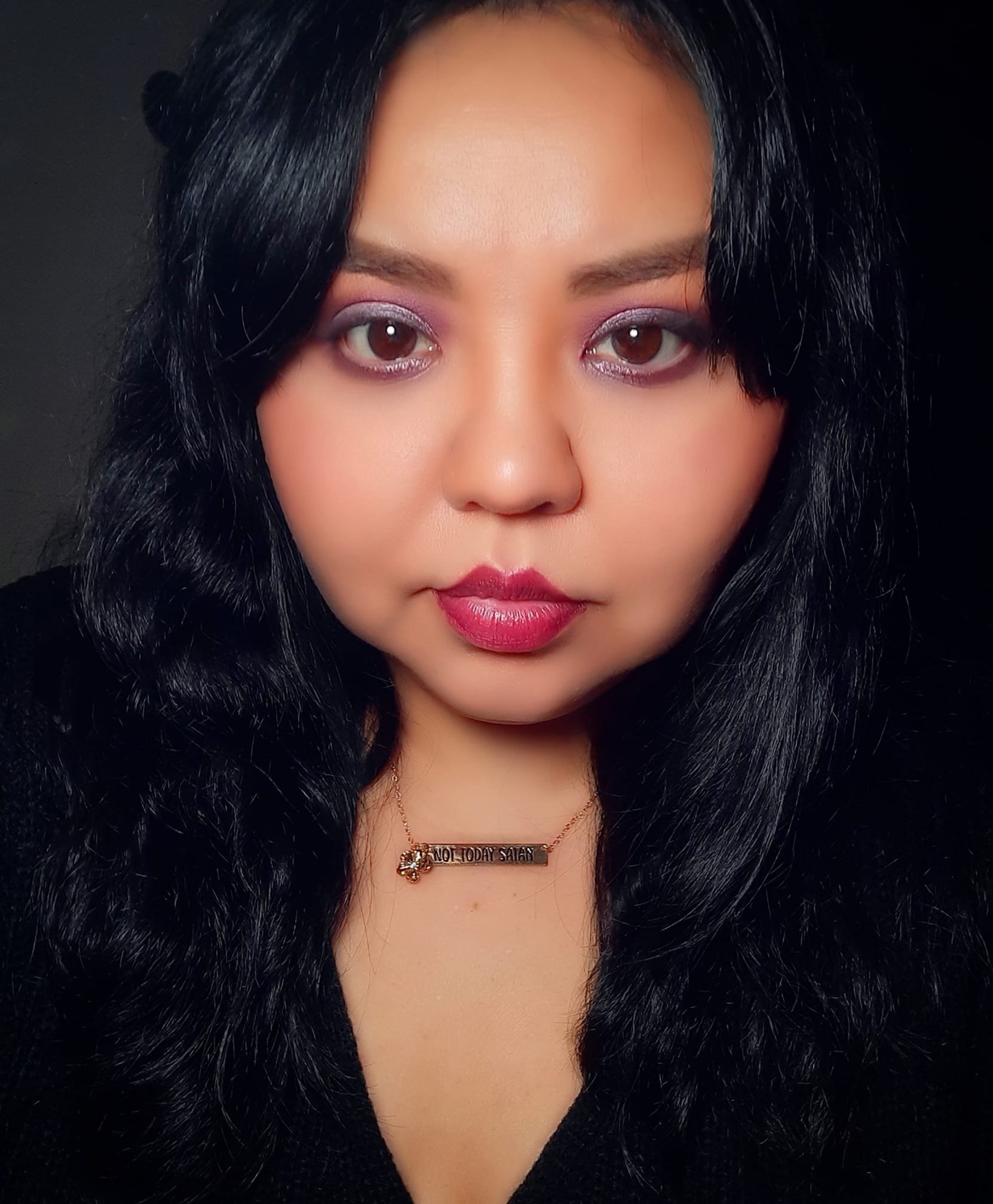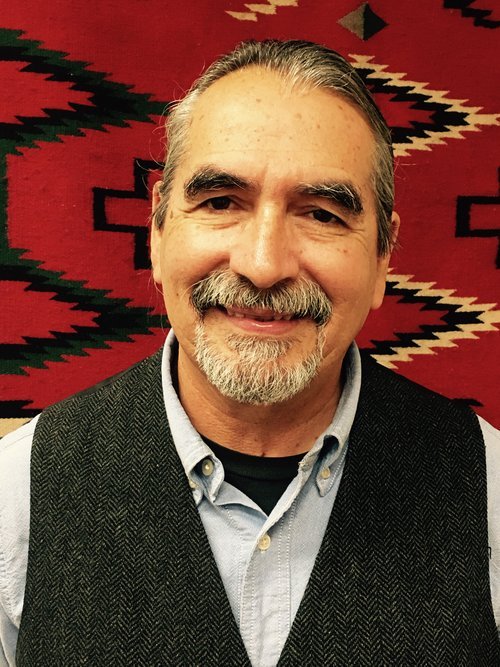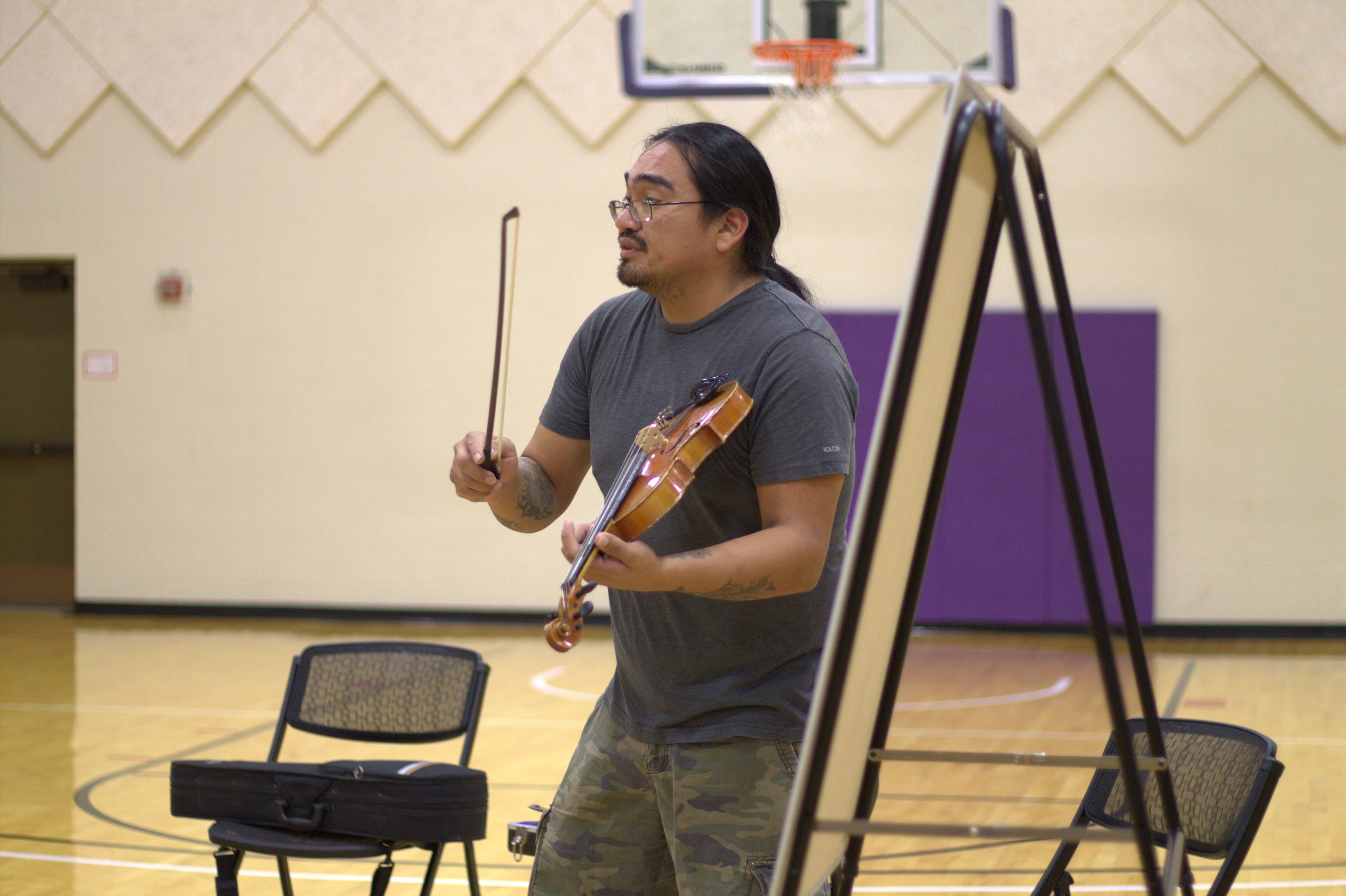Indigenuity 2.0 Day 3:
Wednesday, September 21, 2022
All presentations livestreamed on YouTube and the Arkansas CW.
10:00 AM
Creating Your Character: A Coyote & Crow Workshop
Workshop with Will Thompson
Location: MONAH Tent or Livestreamed on YouTube.
Let your imaginations run free as Will Thompson walks you through the process for creating your own epic Indigenous hero for Coyote & Crow the Roleplaying Game. He'll provide you with a character sheet and walk you through each step, from choosing your animal Path and your Adanadi gift to giving your character a memorable and meaningful background. Through this process you'll get to learn more about the fascinating science fantasy world that is Coyote & Crow. The game was created by Connor Alexander (Cherokee Nation) and written by a team of Indigenous writers, including Will Thompson (Cherokee Nation). You'll leave the workshop with a complete character sheet, ready for stories about them to be told.
11:00 AM
Before We Journey to the Milky Way, What Will We Create Together?
Workshop with Dr. Laura Harjo
Location: MONAH Tent or Livestreamed on YouTube.
This workshop will draw upon Mvskoke tools of futurity to understand how we relate to place and land and what kind of future we imagine for our relatives before we all make our journey to the Milky Way. Indigenous peoples have always grappled with the past, present, and future to make a way for their communities. They have drawn on their embodied knowledges, resources and relations with the surrounding flora, fauna, and minerals to create full and well-lived lives. In this workshop, we will work on maps of care to understand the abundance of our places and imagine a collective future.
Dr. Laura Harjo is a Muscogee (Creek) scholar, Associate Professor and Interim Chair in Department of Native American Studies and affiliated faculty in the Regional and City Planning program at the University of Oklahoma. Her scholarly inquiry is at the intersection of geography and critical ethnic studies with “community” as an analytic focus. Harjo’s research and teaching centers on three areas: (1) spatial storytelling, (2) anti-violence informed Indigenous architecture and planning, and(3) community-based knowledge production.
1:00PM
Uncovering Native History and Preparing for the Climate Future – TCUs and New Technologies
Location: Online panel, watch stream in-house in the MONAH Great Room or on YouTube.
Rising Indigenous scholars discuss environmental problems and how they use traditional knowledge to solve them! See these bright young minds take on pressing issues.
AIHEC is the collective spirit and unifying voice of our nation's Tribal Colleges and Universities (TCUs). AIHEC provides leadership and influences public policy on American Indian and Alaska Native higher education issues through advocacy, research, and programmatic initiatives. In addition, it promotes and strengthens Indigenous languages, cultures, communities, lands, and tribal nations. Its unique position serves member institutions and developing TCUs.
This panel is sponosored by AIHEC.
2:00 PM
Exploring the Healing Power of Creation
Workshop with Johnnie Jae
Location: MONAH Tent or Livestreamed on YouTube.
Join in on an interactive mental health workshop centering around art and creation! By the end, participants will have played an active part in creating a work of art!
Johnnie Jae (Otoe-Missouria, Choctaw) is a journalist, speaker, and community advocateand builder whose work has been featured by USA Today, BBC, and Indian Country Today, toname a few. She is the founder of A Tribe Called Geek, a media platform for Indigenous Geekand STEM culture, and #Indigenerds4Hope, a suicide prevention initiative designed for Native youth.
3:30 PM
Rare Conversation with Dr. Dan Wildcat and Dr. Jessica Hernandez
Location: MONAH Tent or Livestreamed on YouTube.
Dr. Daniel Wildcat, author of Red Alert! Saving the Planet with Indigenous Knowledge and Dr. Jessica Hernandez, author of Fresh Banana Leaves: Healing Indigenous Landscapes through Indigenous Science, engage in a rare conversation between two influential Indigenous Earth scientists from different regions in North America and Latin America.
Dr. Jessica Hernandez (Binnizá & Maya Ch’orti’) is a transnational Indigenous scholar, scientist, and community advocate based in the Pacific Northwest. She has an interdisciplinary academic background ranging from marine sciences to environmental physics. Her work is grounded in her Indigenous cultures and ways of knowing. She advocates for climate, energy, and environmental justice through her scientific and community work and strongly believes that Indigenous sciences can heal our Indigenous lands.
Her book Fresh Banana Leaves: Healing Indigenous Landscapes through Indigenous Science (2022) breaks down why western conservationism isn’t working–and offers Indigenous models informed by case studies, personal stories, and family histories that center the voices of Latin American women and land protectors. She is in the process of writing her second book, Growing Papaya Trees: Nurturing Indigenous Roots of Climate Displacement & Justice.
She currently holds appointments at Sustainable Seattle (Board Member), City of Seattle's Urban Forestry Commission, and the International Mayan League (Climate Justice Policy Strategist).
Daniel R. Wildcat is a Yuchi member of the Muscogee Nation of Oklahoma. His service as teacher and administrator at Haskell spans 36 years. In 2013 he was the Gordon Russell visiting professor of Native American Studies at Dartmouth College. Dr. Wildcat received an interdisciplinary Ph.D. from the University of Missouri at Kansas City. In 1994 he partnered with the Hazardous Substance Research Center at Kansas State University to create the Haskell Environmental Research Studies (HERS) Center to facilitate: 1) technology transfer to tribal governments and Native communities, 2) transfer of accurate environmental information to tribes, and 3) research opportunities to tribal college faculty and students throughout the United States. He is the author and editor of several books: Power and Place: Indian Education In America, with Vine Deloria, Jr.; Destroying Dogma: Vine Deloria’s Legacy on Intellectual America, with Steve Pavlik. His book, Red Alert: Saving the Planet with Indigenous Knowledge, suggests Indigenous ingenuity - Indigenuity – is required to reduce the environmental damage in the Anthropocene. He is a co-author of the “Southern Great Plains” chapter of the Fourth National Climate Assessment.
4:55 PM
Indigenuity: It’s All About Community
with Dr. Dan Wildcat
Location: MONAH Tent or Livestreamed on YouTube. Contest Winners are announced at the end of Dr. Wildcat’s Keynote.
The challenge we have today is the restoration of community in the world in which we live. Community is a tall order given the socio-economic, ideological, and cultural divides that exist in the world among humankind. Yet, the key to Indigenous ingenuity or Indigenuity is the restoration of not only of healthy and respectful relations among our human kin but in extending the sense of community and kinship to the life surrounding us in the ecosystems in which we live. This presentation will argue that we might be standing at the threshold of a reawakening of our relatedness to life around us. Indeed, our hope for mending our broken and divisive human relations can be found in the larger ecosystems in which we live. At it root Indigenuity is about the reestablishment of eco-cultural communities: communities in which humans learn from their different-than-human relatives how to live as mature humans and respectful kin to the life around us. If respectful exercises of biomimicry and Indigenuity are enacted, hope for a resilient and thriving systems of life-enhancement is more than a dream – it is an activity: one desperately needed in this age of the Anthropocene.
Daniel R. Wildcat is a Yuchi member of the Muscogee Nation of Oklahoma. His service as teacher and administrator at Haskell spans 36 years. In 2013 he was the Gordon Russell visiting professor of Native American Studies at Dartmouth College. Dr. Wildcat received an interdisciplinary Ph.D. from the University of Missouri at Kansas City. In 1994 he partnered with the Hazardous Substance Research Center at Kansas State University to create the Haskell Environmental Research Studies (HERS) Center to facilitate: 1) technology transfer to tribal governments and Native communities, 2) transfer of accurate environmental information to tribes, and 3) research opportunities to tribal college faculty and students throughout the United States. He is the author and editor of several books: Power and Place: Indian Education In America, with Vine Deloria, Jr.; Destroying Dogma: Vine Deloria’s Legacy on Intellectual America, with Steve Pavlik. His book, Red Alert: Saving the Planet with Indigenous Knowledge, suggests Indigenous ingenuity - Indigenuity – is required to reduce the environmental damage in the Anthropocene. He is a co-author of the “Southern Great Plains” chapter of the Fourth National Climate Assessment.
6:30 PM
Concert with Larry Mitchell and Michael Begay
Location: MONAH Tent or Livestreamed on YouTube.
Starting off the performance will be short student-composed work with the Arkansas Arts Academy with the help of Michael Begay. The students will perform a reflection on the themes of Indigenuity 2.0! Then watch Michael Begay and Larry Mitchell in concert! Larry Mitchell will be working with Storyteller Gayle Ross.
Larry Mitchell is a Grammy award-winning producer, engineer and performer who has toured the world playing guitar with well-known artists including Tracy Chapman, Billy Squier, Ric Ocasek and Miguel Bosé. In his original compositions, Larry skillfully weaves guitar textures that showcase his virtuosity as a solo artist and ensemble player.
As an artist, he has released 9 solo records and won a San Diego Music Award for best pop jazz artist.
As a producer-engineer, Larry has won 26 New Mexico Music Awards in various categories from pop, adult contemporary, rap, rock, country and Native American. He won a Grammy Award for producing, engineering and performing on “Totemic Flute Chants” by artist Johnny Whitehorse, who is better known as Robert Mirabal of Taos Pueblo.
Larry is currently touring with his own trio as well as with Native artists Shelley Morningsong, Dawn Avery, Joy Harjo and Robert Mirabal.
He has many long-standing endorsements and relationships with companies such as D’Adarrio Strings, D’Marzio Pickups, Tech 21 NYC, Dava Picks, Majik Box, Fractal Audio, Composite Acoustics, Hotone, Samson, Keeley Electronics and now with Knaggs Guitars and Godin Acoustic Guitars.
Michael Begay is a Diné performer/composer of Chamber Music, Experimental Sound, Native American Flute, and Metal music. Not only is Michael Begay an accomplished guitarist and bassist, but also plays piano, and various instruments both Native American and orchestral.
A graduate of the Grand Canyon Music Festival’s Native American Composer’s Apprentice Project (NACAP); Mr. Begay has studied under both Native and nonnative American Composers: Brent Michael Davids (Mohican), David Mallamud, Jerod Impichchaachaaha’ Tate (Chickasaw), Libby Larson, and Raven Chacon (Diné).
Originally based on the Navajo Nation in Northern Arizona, Michael moved to Baltimore, Maryland, after being accepted to The Johns Hopkins Peabody Institute of Music, to further his studies in music composition. Currently, Michael Begay is studying music composition in the studio of Oscar Bettison at Peabody and is currently working on various compositions ranging from Chamber Music, Electronic Ensemble, Solo and Orchestral works.
